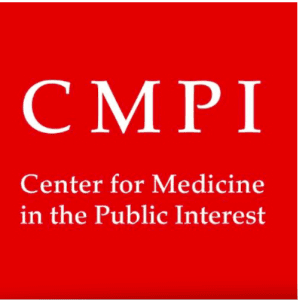President Of Nonprofit Warns That Allowing Foreign Drug Importation Is A Threat To U.S. Patients
 This editorial by Peter Pitts was published in The Detroit News on September 17, 2018. Peter Pitts is the President and co-founder of the Center for Medicine in the Public Interest, a nonprofit, nonpartisan organization that seeks to advance the discussion and development of patient-centered healthcare.
This editorial by Peter Pitts was published in The Detroit News on September 17, 2018. Peter Pitts is the President and co-founder of the Center for Medicine in the Public Interest, a nonprofit, nonpartisan organization that seeks to advance the discussion and development of patient-centered healthcare.
Opinion: The delusion of foreign drug importation
The Trump administration has just announced the formation of a working group at the Food and Drug Administration to study legalizing the importation of foreign-made drugs. Although the study is limited to a narrow set of circumstances in which imports might be allowed, it sets us on a path we shouldn't step on.
The goal is to lower costs and prevent price-gouging by drug makers who find themselves with monopoly power over a particular treatment -- say, an out-of-patent medication for a rare disease with only a single generic manufacturer in the market. But proponents of imports are only starting with the narrow case. Their real goal is to allow foreign imports on a massive scale.
Unfortunately, their efforts are based on a mistaken premise. Legalizing drug importation would not generate substantial savings. Worse, it could expose millions of Americans to dangerous counterfeit drugs.
Several states have tried importation schemes in the past. They've all failed. Illinois, for instance, spent $1 million in taxpayer dollars launching its "I-Save-Rx" program. After much fanfare, only 0.02 percent of the population took advantage of the program during its first year and a half. The state ended the program shortly thereafter.
If Canadian drugs were really as cheap as importation advocates claim, why have all these small-scale importation experiments failed? Why haven't patients flocked to them?
Because the price disparity isn't nearly as great as importation advocates claim. Yes, some high-end specialty drugs cost more in the States, but the vast majority of domestic drugs are low-priced generics. In fact, about 85 percent of all medicines consumed in the United States are actually less expensive than those in Canada or Europe.
Correspondingly, the savings from bringing Canadian drugs stateside are small to nonexistent. In fact, the Department of Health and Human Services estimates that legalizing importation for the entire nation would drop total American drug spending by less than one percent.
Patients may also be leery of foreign drugs for safety reasons -- and rightly so. The production standards and quality controls are much weaker in foreign nations, even developed ones like Canada.
It's no wonder that not a single Secretary of Health and Human Services, of either party, has ever been willing to declare that imported drugs are safe.
From the standpoint of reducing costs, foreign drug importation is a bad idea. From a safety standpoint, it's even worse. The FDA working group has been asked how the import process can be made safe. Even under the narrow circumstances the FDA is considering, the honest answer is that it can't be.